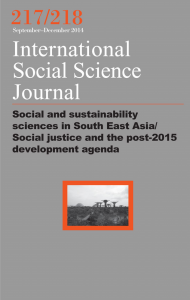Neurodiversity and Queer Phenomenology: Reflections from Life-Writings
Neurodiversity is a concept that recognizes neurodevelopmental disorders as natural variations of the human brain. The sexual politics of neurodiversity, which is often overlooked, sparked interest in our recently published research. In contrast to neurotypical persons, evidence suggests that neurodiverse individuals, particularly those on the autism spectrum, are more likely to be gender diverse and to have a lesbian, gay, bisexual, queer, or asexual sexual orientation (George & Stokes, 2018). The causes of this overlap are numerous, but one explanation is...






1475-682X/asset/akdkey.jpg?v=1&s=eef6c6a27a6d15977bc8f9cc0c7bc7fbe54a32de)
